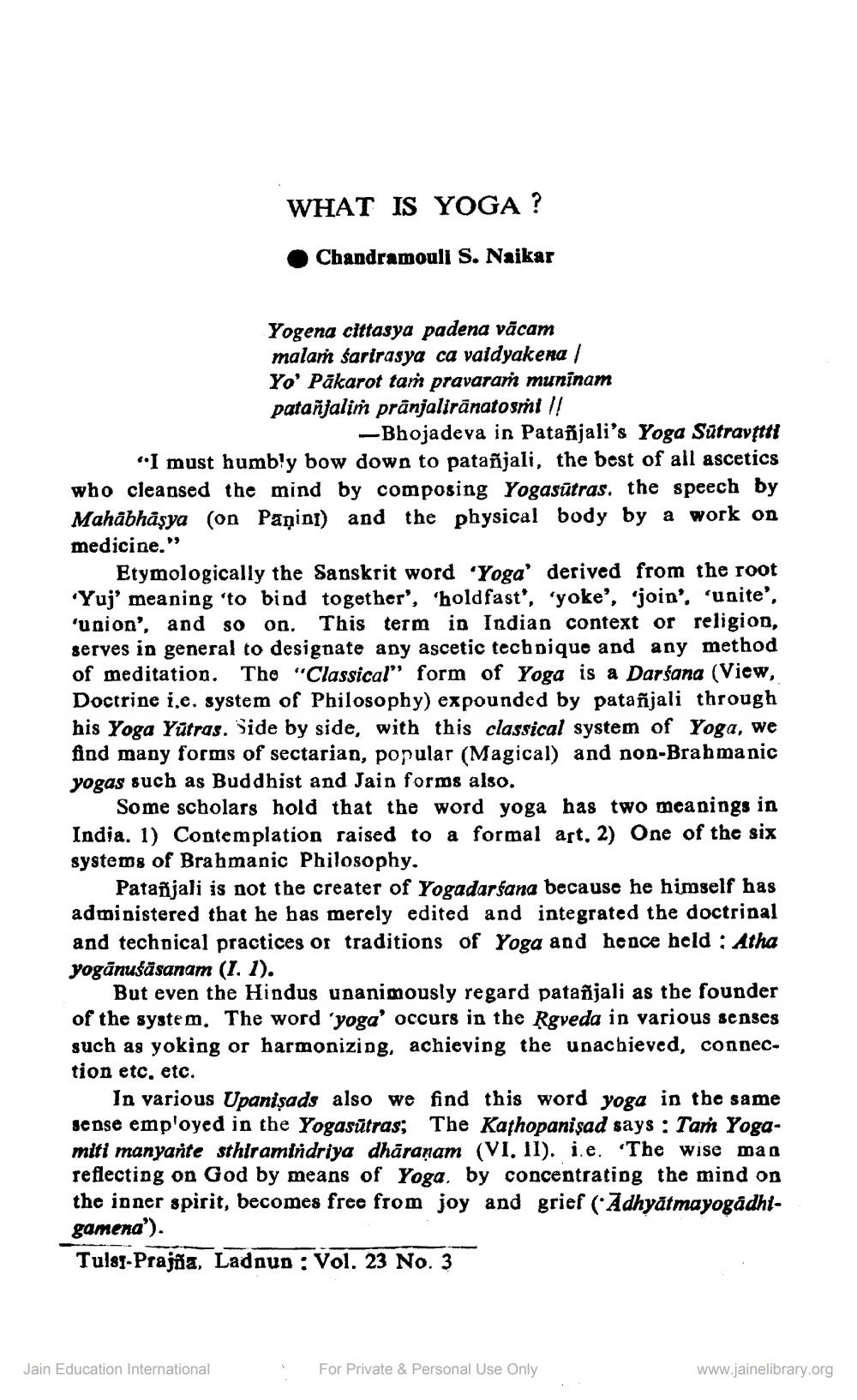________________
WHAT IS YOGA ?
Chandramouli S. Naikar
Yogena cittasya padena vācam malaṁ sarirasya ca vaidyakena / Yo' Päkarot tam pravaram muninam patanjaliñ prānjalirānatosṁi /!
- Bhojadeva in Patañjali's Yoga Sūtravštti "I must humbly bow down to patañjali, the best of all ascetics who cleansed the mind by composing Yogasūtras. the speech by Mahābhāşya (on Panini) and the physical body by a work on medicine."
Etymologically the Sanskrit word 'Yoga' derived from the root Yuj' meaning 'to bind together', 'holdfast', 'yoke', 'join', 'unite', 'union', and so on. This term in Indian context or religion, serves in general to designate any ascetic technique and any method of meditation. The "Classical" form of Yoga is a Darsana (View, Doctrine i.e. system of Philosophy) expounded by patañjali through his Yoga Yütras. Side by side, with this classical system of Yoga, we find many forms of sectarian, popular (Magical) and non-Brahmanic yogas such as Buddhist and Jain forms also.
Some scholars hold that the word yoga has two meanings in India. 1) Contemplation raised to a formal art. 2) One of the six systems of Brahmanic Philosophy.
Patañjali is not the creater of Yogadarsana because he himself has administered that he has merely edited and integrated the doctrinal and technical practices or traditions of Yoga and hence held : Atha yogānušāsanam (I. 1).
But even the Hindus unanimously regard patañjali as the founder of the system. The word 'yoga' occurs in the Rgveda in various senses such as yoking or harmonizing, achieving the unachieved, connection etc, etc.
In various Upanişads also we find this word yoga in the same sense employed in the Yogasūtras; The Kathopanişad says : Tam Yogamiti manyante sthiramindriya dhāraṇam (VI. 11). i.e. "The wise man reflecting on God by means of Yoga, by concentrating the mind on the inner spirit, becomes free from joy and grief (Adhyatmayogadhigamena'). Tulst-Prajña. Ladoun : Vol. 23 No. 3
Jain Education International
For Private & Personal Use Only
www.jainelibrary.org




